Rail passengers protest fares hike at 100 stations
Demonstrations held across England and Scotland after cost of travel increases by 2.3%
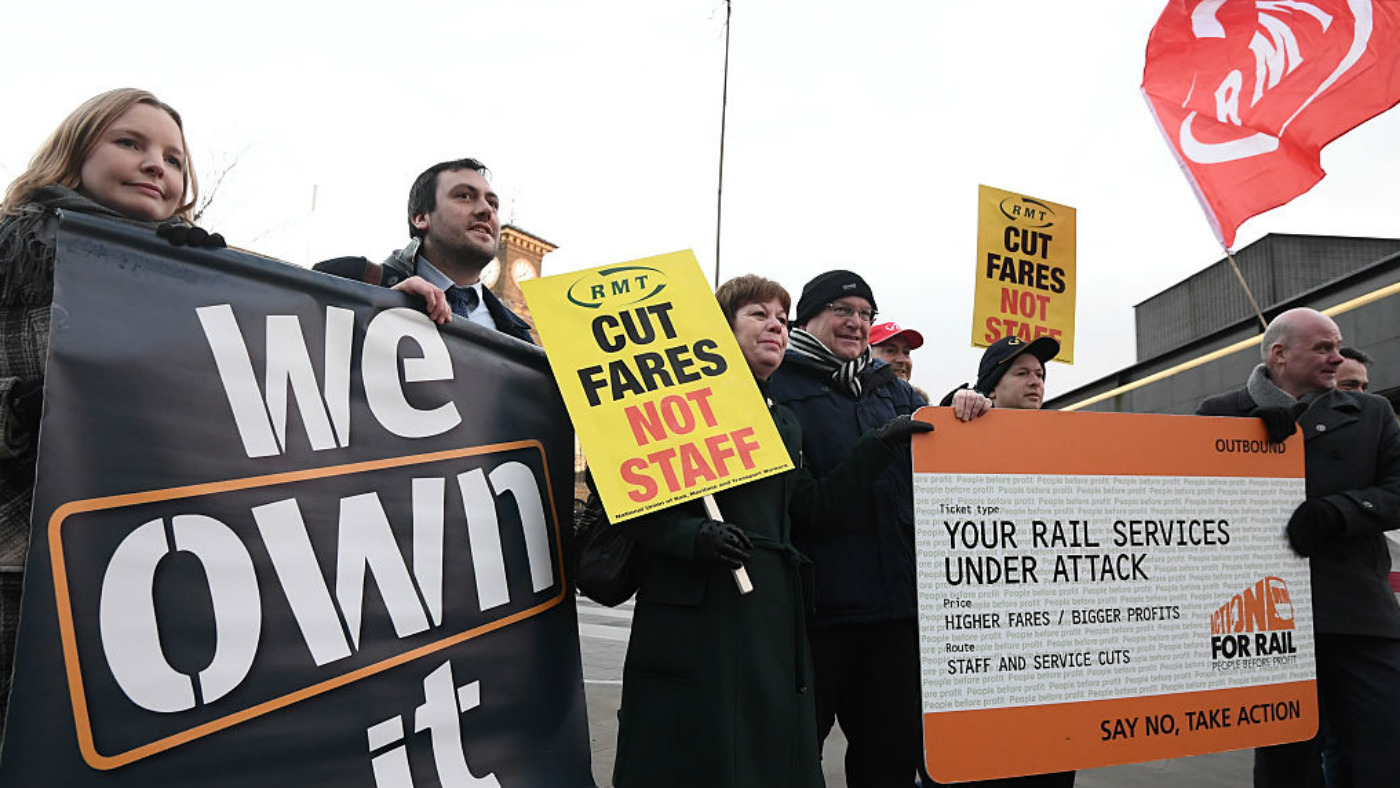
A free daily email with the biggest news stories of the day – and the best features from TheWeek.com
You are now subscribed
Your newsletter sign-up was successful
Bank holiday disruption
28 August
Strike action by workers at First Great Western (FGW) is expected to cause disruption to train passengers this bank holiday weekend.
The Week
Escape your echo chamber. Get the facts behind the news, plus analysis from multiple perspectives.

Sign up for The Week's Free Newsletters
From our morning news briefing to a weekly Good News Newsletter, get the best of The Week delivered directly to your inbox.
From our morning news briefing to a weekly Good News Newsletter, get the best of The Week delivered directly to your inbox.
Members of the Rail, Maritime and Transport (RMT) union are planning to walk out from Saturday 29 August to Monday 31 August in protest at the introduction of new Hitachi intercity trains, which will transfer door operations from the guard to the driver.RMT claims that this "clearly dilutes" the important role of guards and platform staff who ensure the safe incoming and departure of trains, reports City AM.FGW insists the new trains will deliver more seats, faster journey times, more frequent journeys and will mean more train managers on board trains, not fewer.The network has warned that long-distance and local rail services will be reduced if strike action goes ahead this weekend, but expects to run the majority of its London Thames Valley services.FGW has offered full refunds to customers who choose not to travel. Those who do travel have been warned that seat reservations may not be honoured and on-board catering facilities will be limited.Customers holding tickets for Saturday, Sunday or Monday will be allowed to travel on any of those three days. Those with "advanced purchase" tickets for specific trains will be allowed to travel on services immediately before or after their booked train.
If a passenger's journey is cancelled on Monday, they can use that ticket to travel on any off-peak serve the following day.
The RAC has warned that the strikes, combined with falling petrol costs, could encourage up to 50 per cent more cars on the road this bank holiday compared with last year's three-day summer weekend. The automotive services company said it expected an extra 14 million vehicles on the roads.
"With the best of the British weather set to make a reappearance, a significant amount of tourists are expected to flock to coastal towns in a bid to soak up what's left of the summer sun," said Pete Williams, of the RAC.
A free daily email with the biggest news stories of the day – and the best features from TheWeek.com
Those attempting to travel to Cornwall or the south coast by train will face some reduced and cancelled services.Traffic congestion is likely around Reading and Leeds, says the Daily Telegraph, as thousands of revellers leave the two bank holiday music festivals.
FGW has said most services in the London Thames Valley area will run as normal. However, trains between Reading and Gatwick will operate hourly and terminate at Redhill, and trains between Reading and Basingstoke will run hourly in each direction. The Oxford and Reading to London fast services will be operated by different trains from normal.
Rail strike day two: guide to First Great Western train disruption
10 July
Commuters on First Great Western trains are facing further disruption today as planned 48-hour strike action by RMT union members continues for a second day.
FGW customers have been warned that capacity will be limited and have been advised to travel on other days if possible.
The start of the walkout on Wednesday evening coincided with a major 24-hour London Underground strike, while an overtime ban on Saturday 11 July could also mean changes or possible cancellations at the last minute.
FGW said yesterday that more than 60 per cent of services were "operating as normal", but RMT's Mick Cash said the "skeleton service" was "dangerously overcrowded" in some areas. The train operator has insisted that safety is a "top priority" and that it would not operate a service "without the correct number of safety-competent people on board".
Union members are angry over plans to cut guards and buffet cars on its new Hitachi Inter City Express trains. Cash said: "The company still feel that the configuration of the new super express trains is out of their control and that it would be in their best interests to have 'driver-only' operations and to remove the buffet cars."
Season ticket holders will be compensated and those with tickets for Thursday and Friday were told they could travel on Wednesday or Saturday, subject to any travel restrictions on their ticket (such as off-peak restrictions). However, seat reservations are unlikely to be honoured.Services will not be operating on Friday between:
- Severn Beach and Bristol Temple Meads
- Looe and Liskeard
- Newquay and Par
- Falmouth and Truro
- Greenford and London Paddington
- Weymouth and Westbury
- Swindon and Westbury via Melksham
The Night Riviera sleeper service, between London and Penzance, was cancelled on Wednesday and Thursday, but it will operate on Friday.Other trains in Thames Valley, Bristol, south Wales, the Cotswolds, Devon and Cornwall will be running on a reduced service. For example, trains will not be stopping at Marlow in Buckinghamshire and some services will only be running every hour or every two hours. Other routes, such as the train between Cheltenham Spa and London Paddington, are only running "one train per morning and evening peak in each direction".
Cricket fans travelling to the England vs Australia match in Cardiff today have been advised to make alternative travel arrangements. First Great Western said the 7.15am and 8.15am services from London Paddington to Cardiff would arrive in time for the 11am start on Friday, but there were "limited services" returning from Cardiff to Bristol and London in the evenings. "These services will be extremely busy so we recommend customers make alternative travel arrangements where possible," said the train company.
Commuters can plan their journey using the First Great Western journey planner, contact @fgw on Twitter for help or click on the map below:
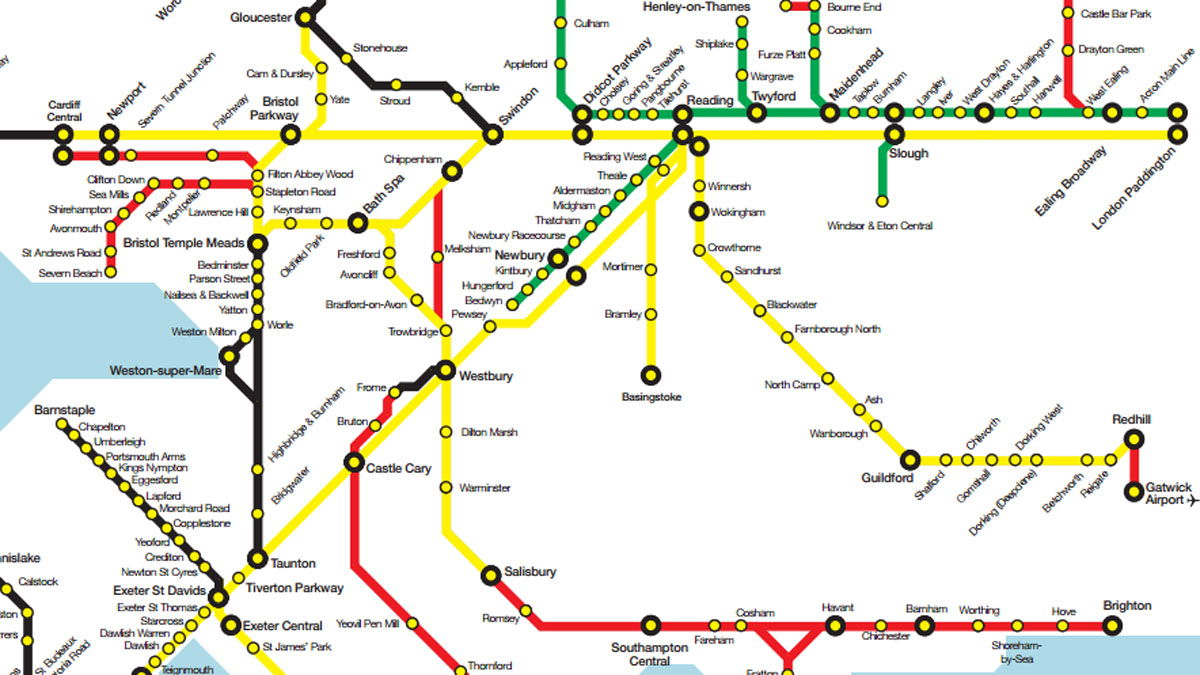
Why are rail workers striking?
Union members voted to strike after failing to reach assurances over jobs, which they fear are under threat from the introduction of the new Hitachi Inter City Express trains from 2017.
The union's general secretary, Mick Cash, said the RMT had attempted to secure basic assurances from FGW over job security for its members as a result of the introduction of the new fleet, but that the company had shown no intention of addressing those issues in the talks. Cash claimed that rival train operator East Coast – which is also introducing the trains – had provided these assurances.
"It is frankly ludicrous that East Coast, who are introducing the same trains, have given us the assurances we are seeking but FGW have ignored us and are crashing on with the ripping out of buffet cars and the threat to safety-critical station and train staff, purely to maximise the profits from new trains bought for them by the British taxpayer," said Cash.
Mark Hopwood, FGW's managing director, said the new trains – the largest fleet upgrade the operator has made for a generation – would cut some journey times by as much as 17 minutes and provide extra seating capacity.
He accepted that the trains would need to be operated differently but also said that, contrary to Cash's statement, FGW had given assurances over job security and the need for more, not fewer, staff to work on the new trains.
Rail strike: 'summer of delays' as rail and Tube staff plan walkout
3 July
Rail workers on several train routes have backed strike action for later this month, prompting fears of a "summer of delays".
The news comes as London Underground workers from four different unions have also voted to take industrial action.Engineers at Southern Rail, which operates services from London Victoria and London Bridge, today backed a five-day strike starting from Sunday 12 July. There will also be a ban on overtime that weekend.
The Rail and Maritime Transport (RMT) union said there had been a "comprehensive breakdown" in industrial relations, but Southern Rail insisted it had been having "meaningful talks" and was "disappointed" with the decision.
Staff at Northern Rail, which calls at over 500 stations across the Manchester, Merseyside and Yorkshire areas, have also voted to strike.
RMT members working for First Great Western will stage a walkout to coincide with the 24-hour London Underground workers' strike, planned for 8 July. Rail staff at First Great Western believe they are under threat from the new Hitachi Inter-City trains, due to be introduced from 2017.
"Commuters could be set for a summer of delays," says the BBC, which points out that the announcements have come as the government plans to tighten strike laws.
In its manifesto, the Tories pledged to tackle the "disproportionate" impact of strikes in essential public services by introducing a tougher threshold in health, education, fire and transport.
The party said that industrial action in essential public services should have to have the support of at least 40 per cent of all those entitled to take part in strike ballots – as well as a majority of those who actually turn out to vote.
-
 Bad Bunny’s Super Bowl: A win for unity
Bad Bunny’s Super Bowl: A win for unityFeature The global superstar's halftime show was a celebration for everyone to enjoy
-
 Book reviews: ‘Bonfire of the Murdochs’ and ‘The Typewriter and the Guillotine’
Book reviews: ‘Bonfire of the Murdochs’ and ‘The Typewriter and the Guillotine’Feature New insights into the Murdoch family’s turmoil and a renowned journalist’s time in pre-World War II Paris
-
 Witkoff and Kushner tackle Ukraine, Iran in Geneva
Witkoff and Kushner tackle Ukraine, Iran in GenevaSpeed Read Steve Witkoff and Jared Kushner held negotiations aimed at securing a nuclear deal with Iran and an end to Russia’s war in Ukraine
-
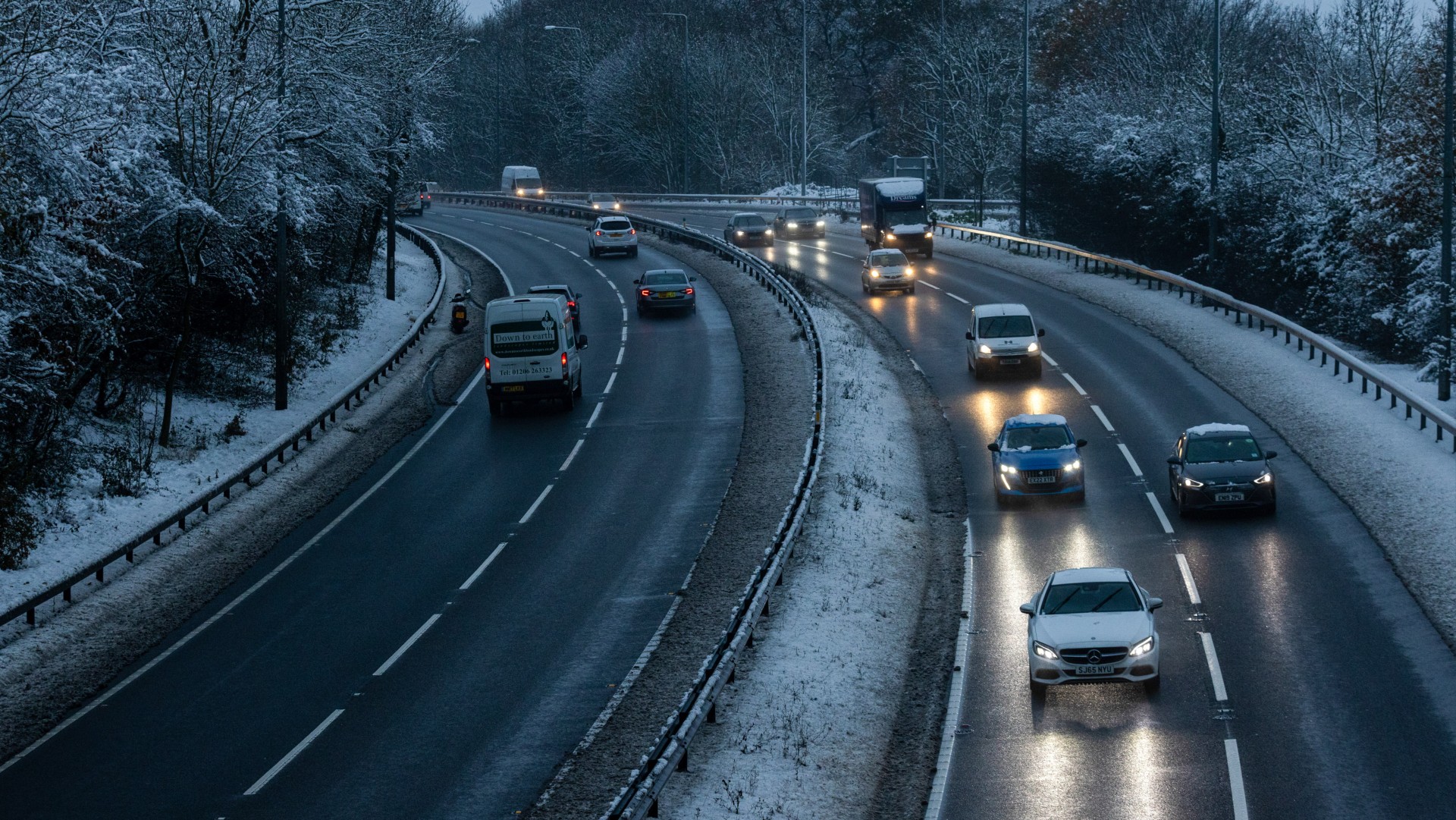 Driving home for Christmas: 20m UK car journeys expected this week
Driving home for Christmas: 20m UK car journeys expected this weekSpeed Read First Covid-free Christmas in three years plus rail strike means this year’s festive getaway ‘set to be biggest ever’
-
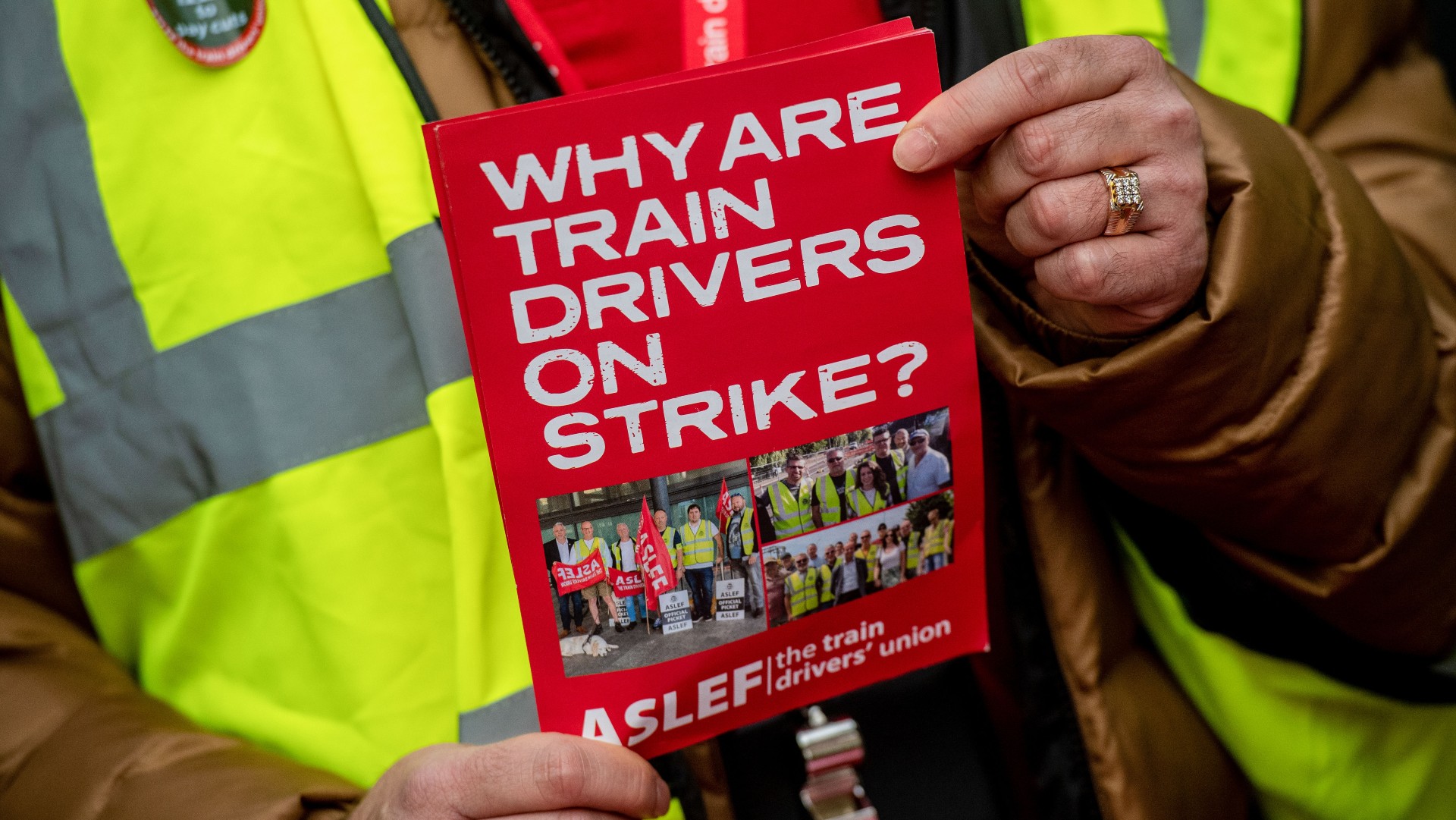 Rail strikes: whose side is the public on?
Rail strikes: whose side is the public on?Talking Point Opinion split over who is to blame for month of train disruptions following failed talks between transport officials and unions
-
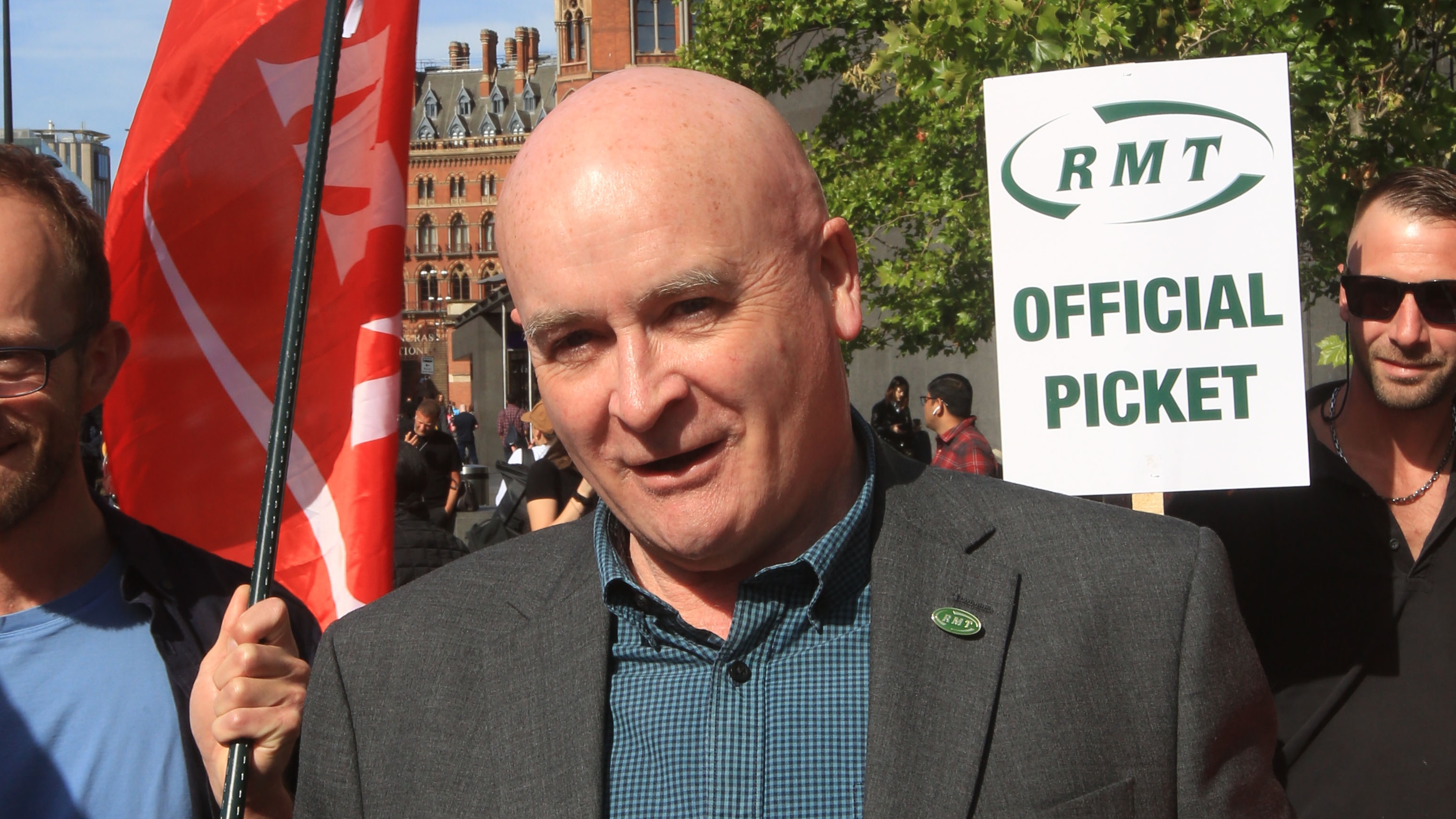 Mick Lynch: the veteran trade unionist leading rail walkouts
Mick Lynch: the veteran trade unionist leading rail walkoutsIn the Spotlight The RMT has reportedly balloted for strike action 200 times under Lynch’s leadership
-
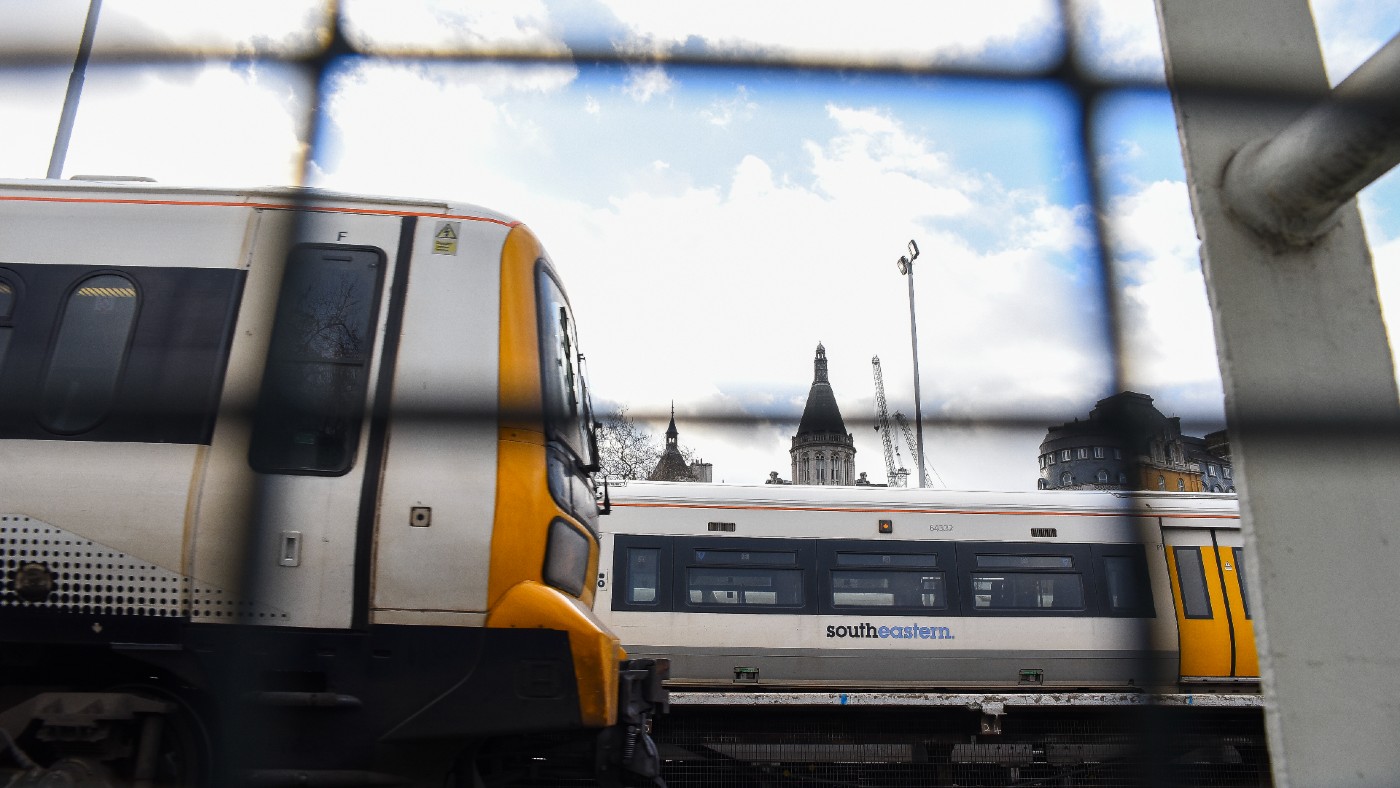 Rail strikes: is Britain on track for a ‘summer of discontent’?
Rail strikes: is Britain on track for a ‘summer of discontent’?Speed Read The ‘biggest rail strike in modern history’ is planned for next week
-
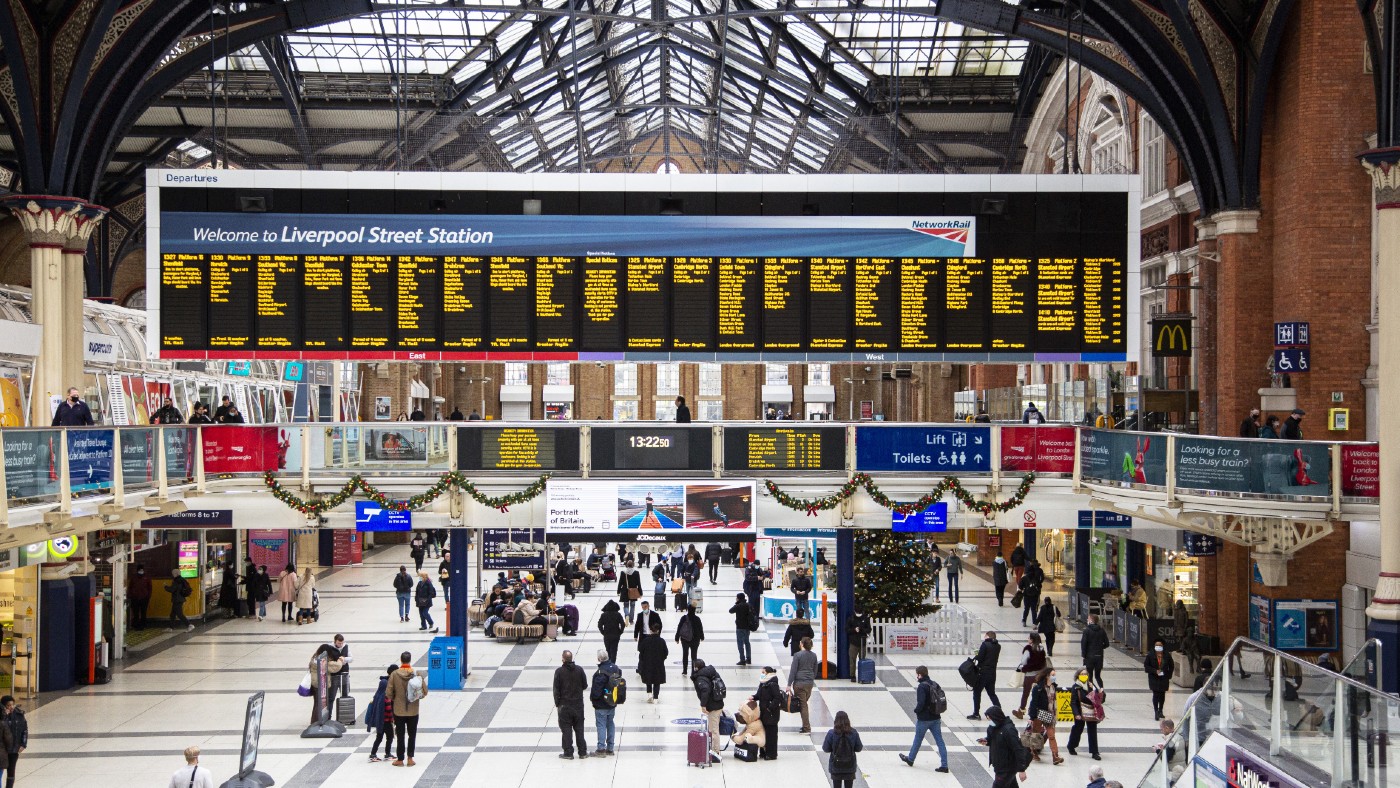 ‘See it. Say it. Sorted’: is it the end of the line for train announcements?
‘See it. Say it. Sorted’: is it the end of the line for train announcements?Speed Read The transport secretary has pledged a ‘bonfire of the banalities’ on England’s railways
-
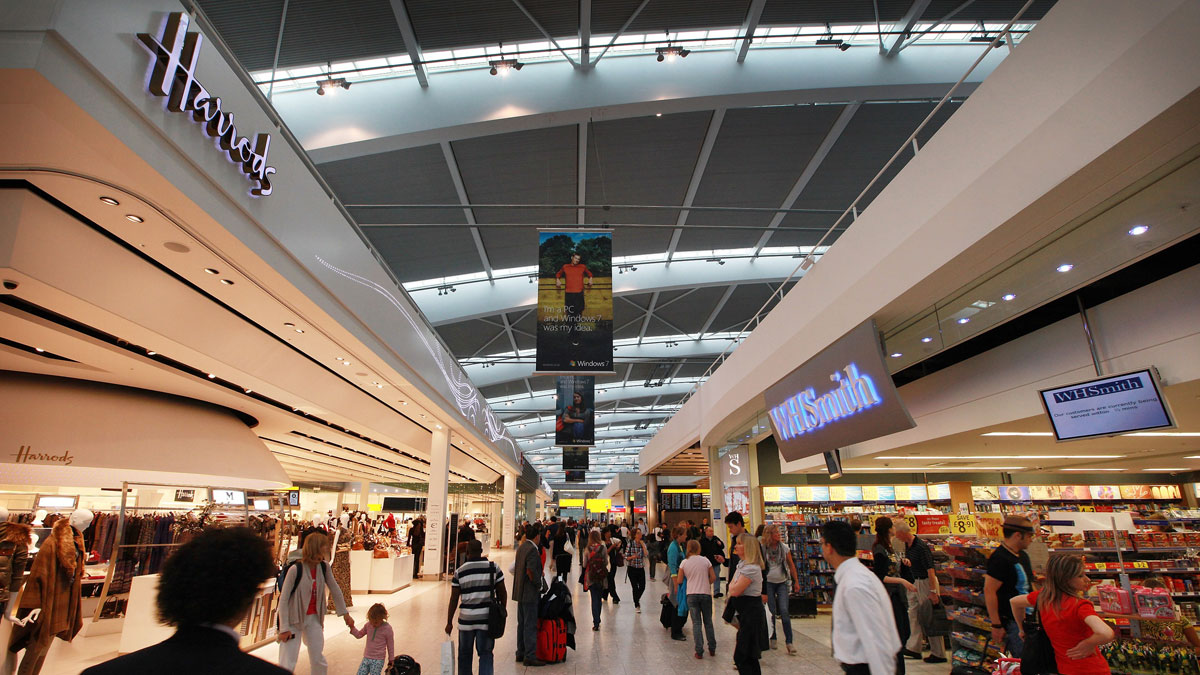 UK to bring in airport Covid tests for arrivals
UK to bring in airport Covid tests for arrivalsSpeed Read MPs call for stricter border measures as South African variant of coronavirus spreads
-
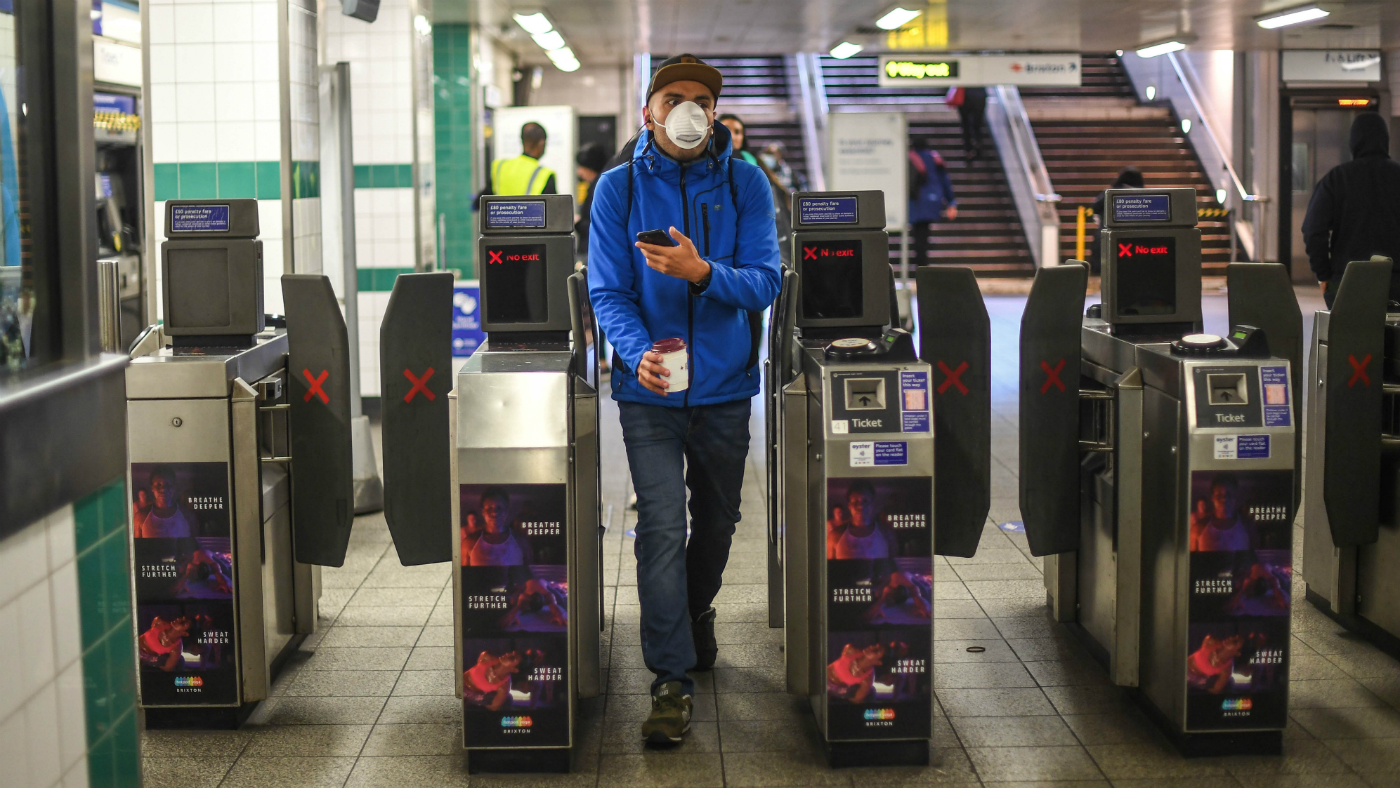 UK records biggest jump in transport use since pandemic began
UK records biggest jump in transport use since pandemic beganSpeed Read Monday rush hour sees spike in commuters across country as trains return to 90% of pre-coronavirus services
-
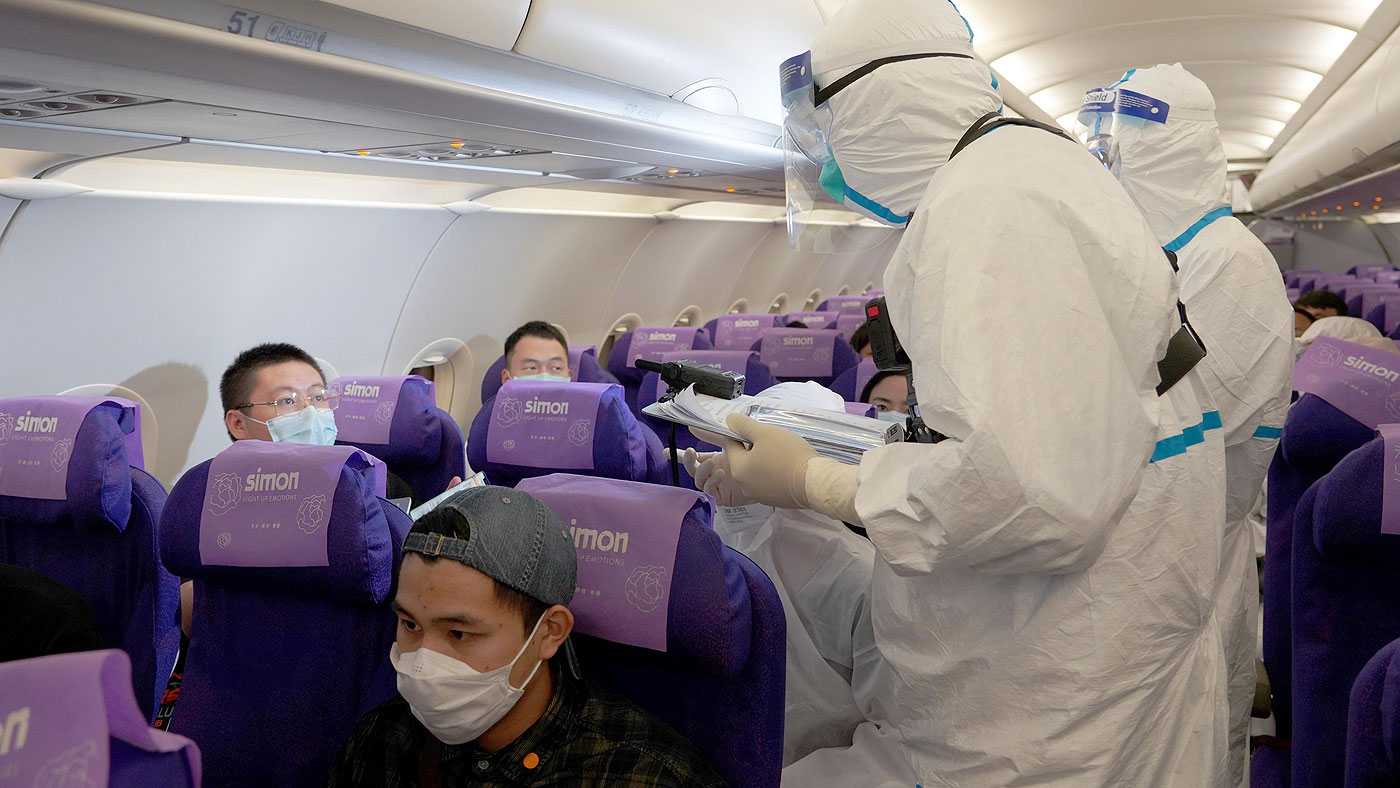 Coronavirus: what are the odds of catching Covid-19 on a plane?
Coronavirus: what are the odds of catching Covid-19 on a plane?Speed Read Studies suggest air travel is safe despite concerns about air quality